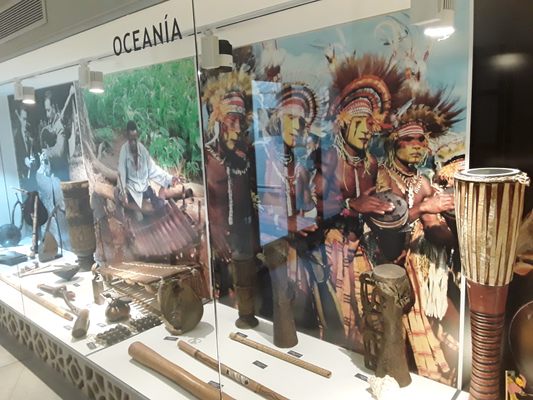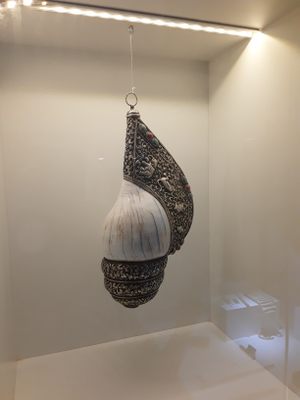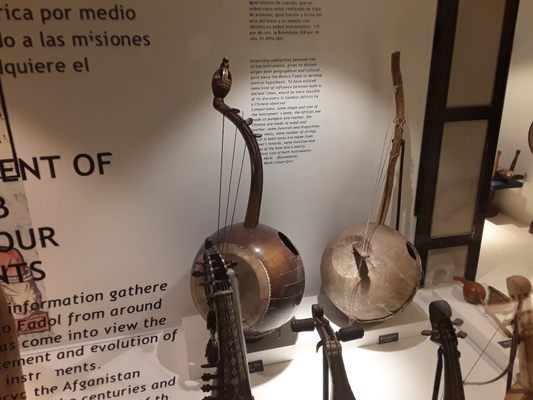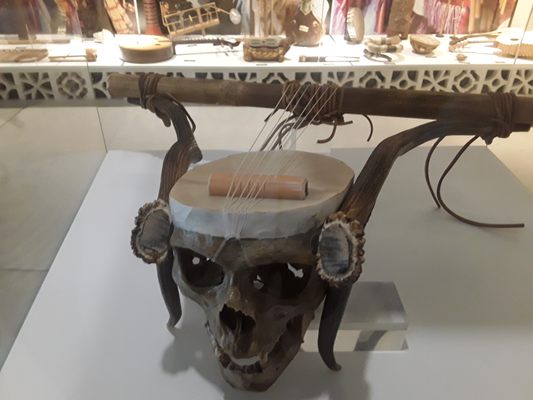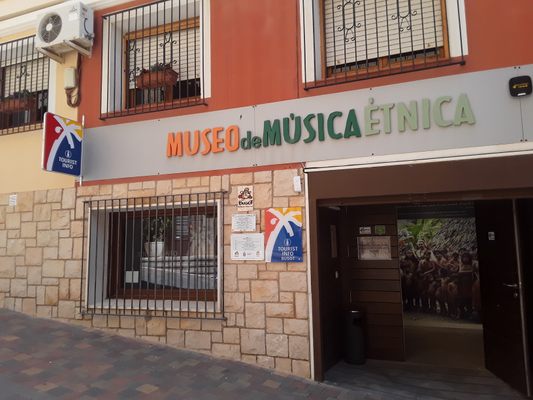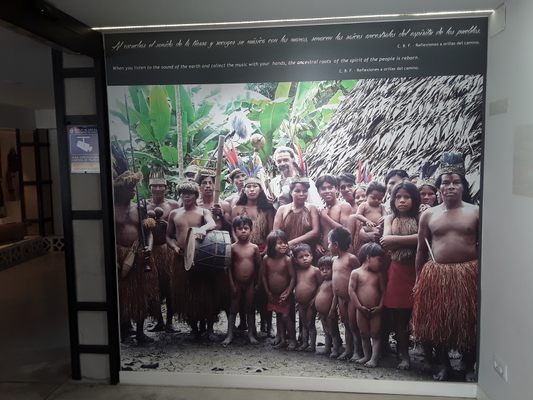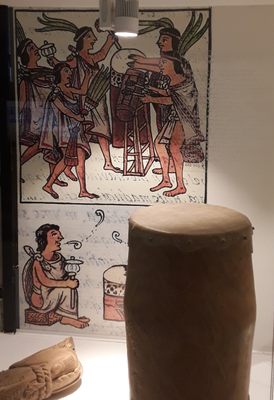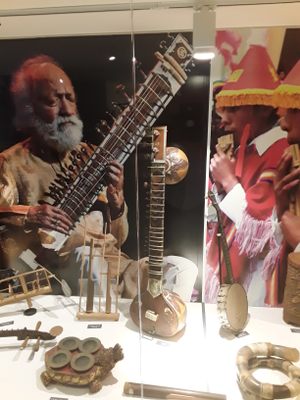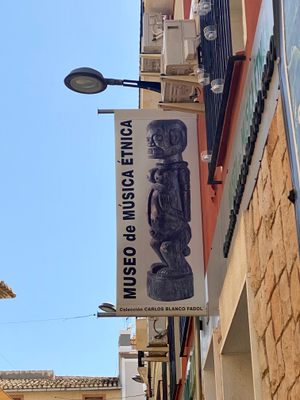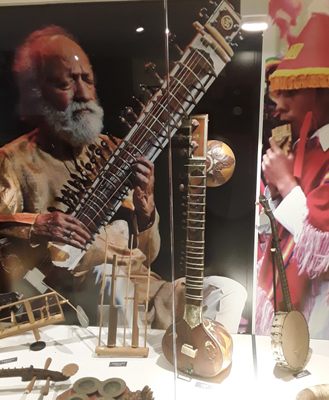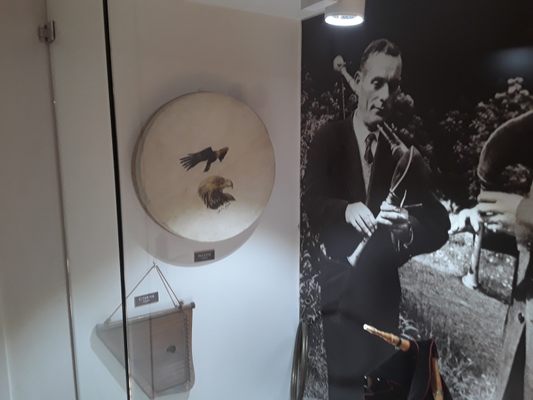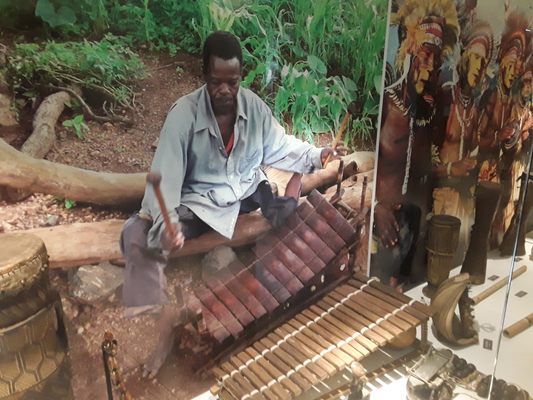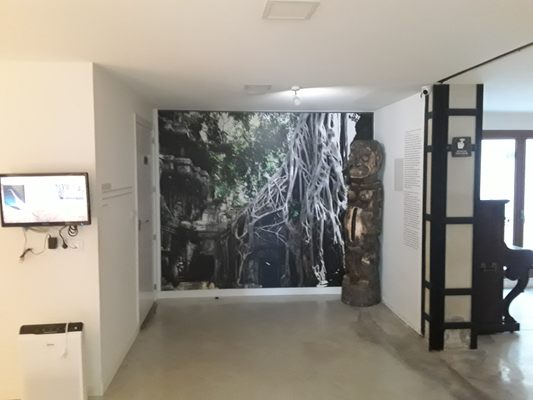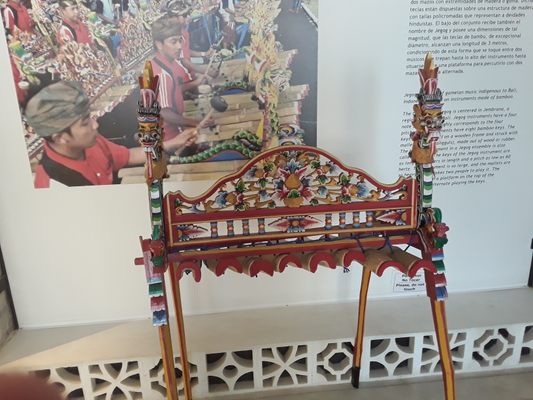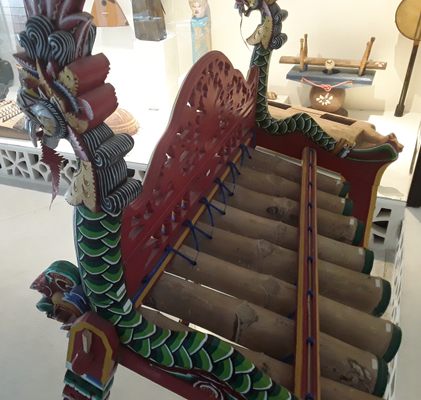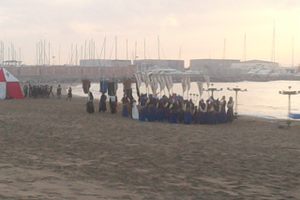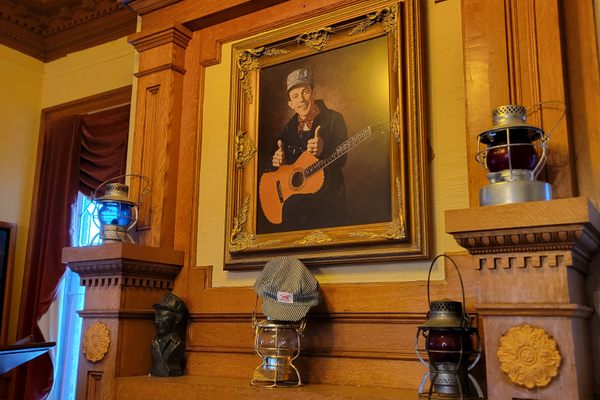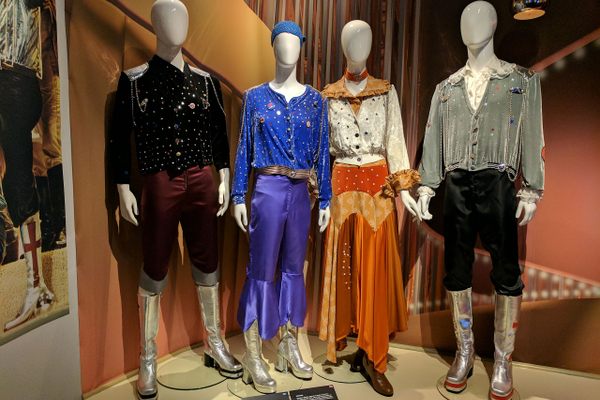About
What this museum lacks in size, it makes up for in quality. The Ethnic Music Museum in the small municipality of Busot is based on a private collection donated by Carlos Blanco Fadol, a long-time resident of Busot originally from Uruguay.
Fadol's collection consists mainly of musical instruments acquired during his trips to five continents. However, several non-instrument exhibits are also worthy of note, like a machine that was used to imitate the sound of wind and storms in a Valencian theater, and a sound-generating tribal sculpture of a pregnant woman used to announce the birth of a child.
Among the instruments themselves are two examples of a kirar or kar, a lyre-like Ethiopian stringed instrument, with a sound box constructed from a human skull. As this instrument would normally have a bowl-shaped wooden sound box, it has been suggested that the skull versions are 19th-century tourist pieces made as bizarre souvenirs.
Aside from the artifacts, displays include high-quality photographs of the instruments in use in their traditional environment. Many exhibits have QR codes that can be scanned by phone to generate a short sound file of the instrument being played.
Related Tags
Know Before You Go
The museum is closed on Mondays. It is open from 11 A.M. to 2:30 P.M. and from 3:30 P.M. until 6 P.M. on other weekdays, and until 7 P.M. on Saturday and Sunday. Admission is €2.50, or €1.50 for seniors.
If driving, it is best to park close to the Busot Medical Center. By public transport, you can take a bus from Alicante to Muxtamel (line 23) which runs frequently, and then from Muxtamel to Busot (line C-51), which runs four times per day. It is also possible to take a combination of tram and bus from most of the northern Costa Blanca coastal strip, changing at El Campello, but these buses only run five times per week.
Community Contributors
Added By
Published
June 14, 2024
